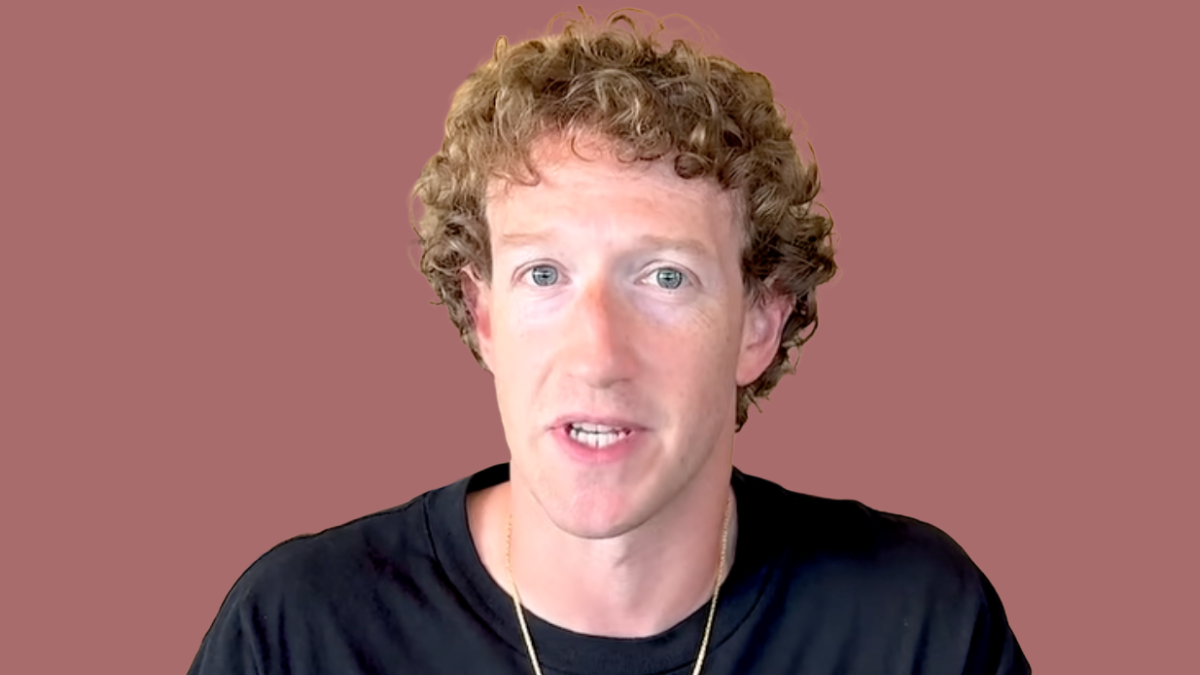Mark Zuckerberg and the Internet for Billionaires
Jenna Ruddock / Jan 14, 2025Billionaires are natural allies with the political right. Meta’s latest pivot is a stark reminder of what that means for the rest of us, writes Free Press policy counsel Jenna Ruddock.

Composite of Meta founder and CEO Mark Zuckerberg. Source
Last week, Meta founder and CEO Mark Zuckerberg announced that the company will largely abandon its efforts to moderate any content on its platforms that isn’t illegal under US law. Echoing familiar right-wing talking points about censorship and the alleged unreliability of fact-checkers, Zuckerberg claimed it’s time for Meta to “get back to [its] roots around free expression.”
Sounds nice — if we’re ignoring everything we know about what Meta’s roots really are and if we’re overlooking every dog whistle in Zuckerberg’s announcement. It also requires ignoring the fundamentally antidemocratic efforts of billionaires like Zuckerberg, Elon Musk, Jeff Bezos, and others to amass power through and beyond their tech platforms — efforts that have been on full display for weeks as the scions of Silicon Valley have made the ritual trek to Mar-a-Lago and cut million-dollar checks to the Trump inaugural committee.
Of course, Meta will gladly use your free expression to train its latest AI models, with or without your consent. Meta is also likely using your speech to train the AI-generated bot profiles it plans to populate its platforms with. But despite Zuckerberg’s long-running efforts to spin a more idyllic origin myth, his company’s roots have little to do with “protecting speech.” Meta’s roots lie in mass surveillance, and its success depends on extracting vast troves of our personal data from across the internet. Facebook was a prototype for the walled gardens that now dominate the internet; its status as a gatekeeper for so many people’s online expression is by its own design.
Listening to Zuckerberg, one could easily assume that the primary failure of Meta’s content-moderation efforts is that they’ve been “out of touch with mainstream discourse.” This isn’t only a dog whistle; it is a deliberate whitewashing of Meta’s long history of failures. Meta failed to stop QAnon and white nationalist organizing on Facebook despite promises to take action. The company’s penchant for rampantly violating people’s privacy led to the Cambridge Analytica scandal. Facebook, as the United Nations Human Rights Council found in 2018, helped to fuel genocide and other crimes against humanity in Myanmar. It was also an accelerating force and organizing hub for the January 6, 2021, assault on the US Capitol. Meta created an internal system to prioritize the posts of celebrities and politicians, even when they engaged in harassment or incited violence. It even created a tool that allowed landlords and others to discriminate against people based on race, gender, and other protected characteristics. The company continues to exploit traumatized content moderators around the world and has consistently prioritized US-based English-speaking users at the expense of everyone else.
But according to Zuckerberg, the real problem is that Meta has implemented “a bunch of restrictions on topics like immigration and gender.” That might sound like Meta has had extensive restrictions on content dealing with those issues. What Meta’s policies on immigration and gender have actually prohibited is targeted harassment and dehumanizing speech — like referring to immigrants, trans people, or women as objects, animals, or property.
No worries, though: Meta will now specifically allow “allegations of mental illness or abnormality when based on gender or sexual orientation.” Its new policies also go out of the way to reassure people that they can post “calls for exclusion or use insulting language” when discussing “religious or political topics like transgender rights, immigration, and homosexuality.” Meta has removed Messenger themes featuring the trans- and nonbinary-pride flags and deleted blog posts announcing those themes. Meanwhile, Meta will relocate its trust and safety teams from California to Texas — a state that’s leading the country with its aggressive anti-immigrant, anti-trans, and anti-abortion policies.
Meta will also end partnerships with fact-checking organizations, whom Zuckerberg accuses — without proof — of being “too politically biased.” This implies that these supposed biases led to some of the “censorship” Zuckerberg claims is rampant (on his own platforms) — despite the fact that Meta never gave third-party fact-checkers the power to take false or misleading content down. That this allegation misrepresents fact-checkers’ role in Meta’s content-moderation process is irrelevant to Zuckerberg’s play here. He didn’t have to throw fact-checkers under the bus to step away from that work — Meta has been shutting down internal fact-checking efforts and offloading the burden onto journalists and external researchers for years now.
But baselessly disparaging fact checking is yet another nod to Zuckerberg’s target audience. That includes regulators and policymakers, like key Trump allies Rep. Jim Jordan (R-OH) and incoming Federal Communications Commission (FCC) Chairman Brendan Carr, who lead the field in weaponizing allegations of censorship to target and silence critical researchers and nonprofits, including what they label as “so-called ‘fact-checking’ organizations.” That Rep. Jordan and Commissioner Carr have both exerted the exact kind of “government pressure” on Meta that Zuckerberg claims to be so concerned about is also beside the point because they want what he wants: for Meta to leave up more hate and take less responsibility for its products and their consequences.
Abandoning content-moderation efforts on Meta platforms will have ripple effects across the rest of the internet. Forums like 8chan have long existed for white supremacists and far-right extremists to find community and coordinate targeted harassment campaigns. But Facebook, in particular, offers two things those forums never could: scale and a mainstream audience. While Facebook isn’t the whole internet, for many people it functions that way — again, thanks to Meta’s own efforts to keep people inside its walls. And while the barriers between Meta platforms and more extreme corners of the internet have always been porous, the floodgates for hate and harassment are now poised to burst.
None of that is Mark Zuckerberg’s concern. The world’s largest technology platforms are disproportionately controlled by American billionaires whose vast wealth alone is inherently anti-democratic. (Zuckerberg, for his part, has spent hundreds of millions of dollars buying up land in Hawaii to build a self-sustaining compound with an underground complex he insists is definitely not a “doomsday bunker.” He’s not alone in building them.) These billionaires have built or bought giant corporations accountable, first and foremost, to shareholders and have consistently failed to grapple with the harms their products inflict on the broader public. (Musk didn’t even want to be accountable to shareholders, taking Twitter private when he acquired it. Zuckerberg remains Meta’s largest single shareholder and cannot be removed by its board of directors.) Their companies — from X to Meta to Bezos’ Amazon— routinely run afoul of regulators even while aggressively working to capture public resources, including through lucrative government contracts. Their own workers are an inconvenience or an afterthought: 404 Media reported “total chaos” as Meta employees reacted to the new anti-LGBTQIA+ policies. The company has since announced that it will end its diversity, equity, and inclusion programs.
With the far right gaining ground globally, catering to Trump’s agenda is a calculated choice for tech billionaires. Elon Musk’s growing political leverage with Trump and far-right EU leaders is a stark example. But it shouldn’t come as a surprise or be seen solely as a capitulation to power: For figures like Zuckerberg and Musk, their enthusiastic turn is more deeply rooted than a matter of corporate or political strategy. And as always, the extreme inequality that makes billionaires possible also requires the scapegoating and disenfranchisement of vulnerable populations.
Otherwise, people looking for somebody to blame might find plenty of culprits at the top.
Authors
